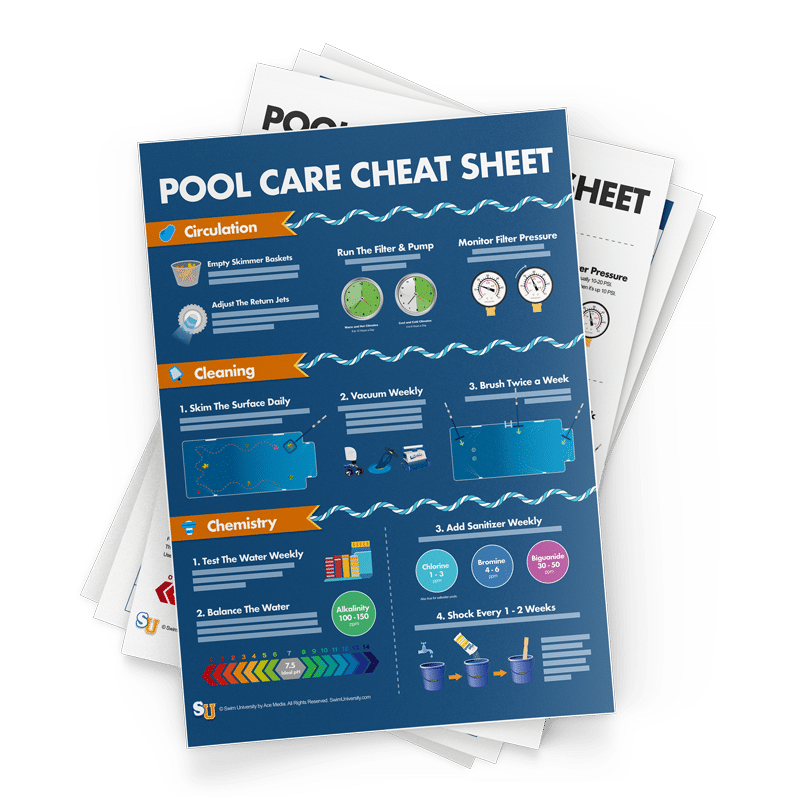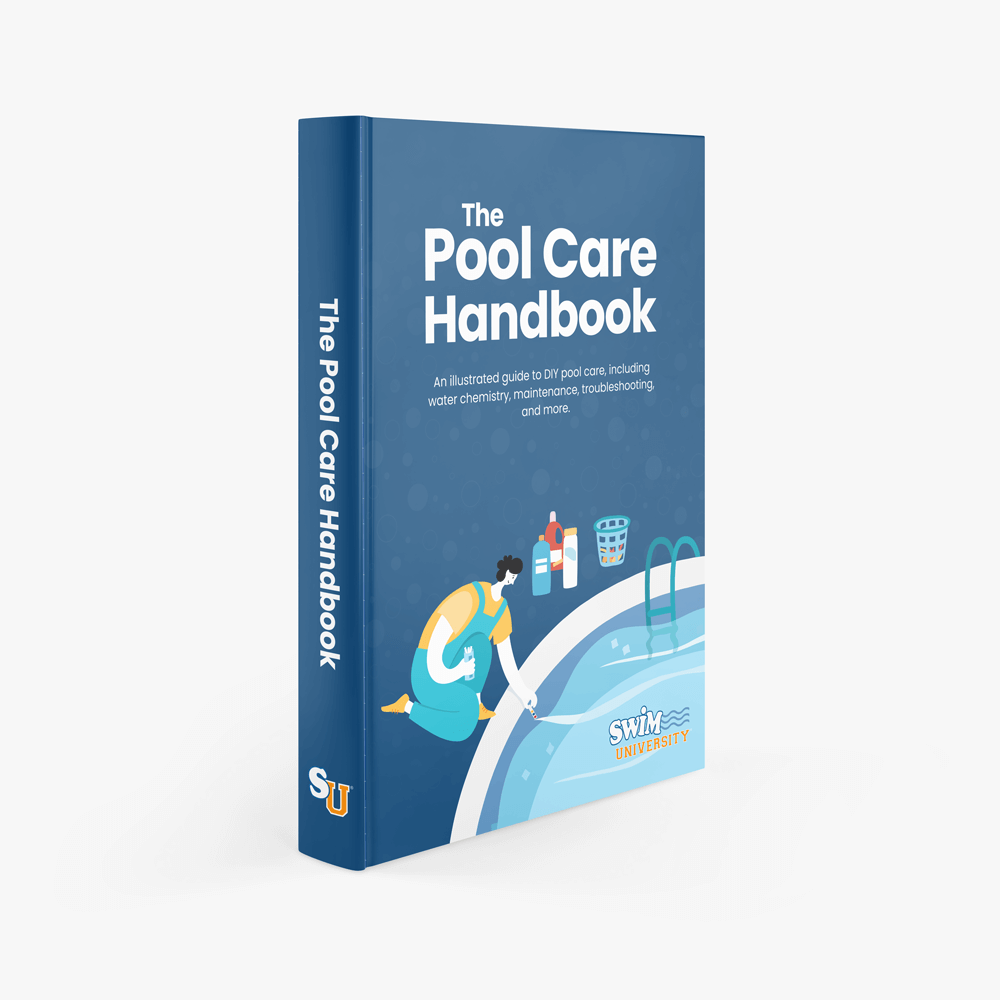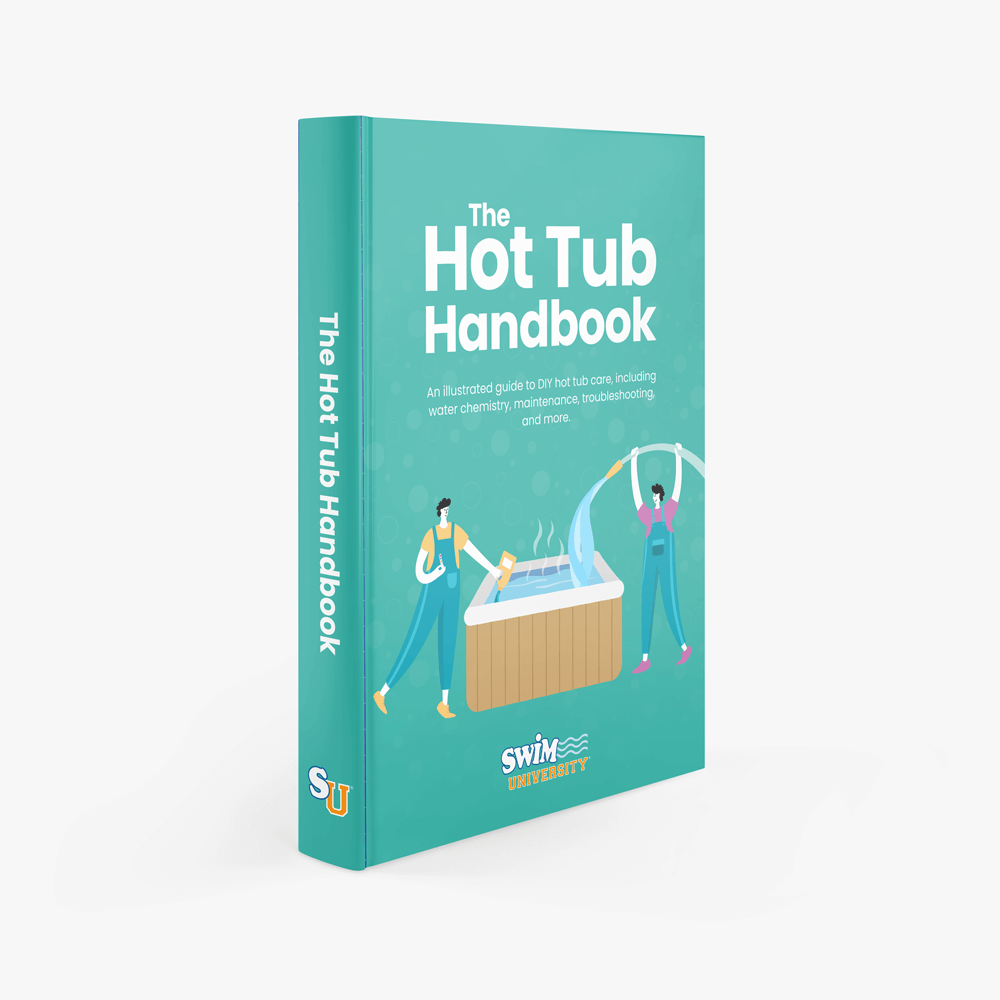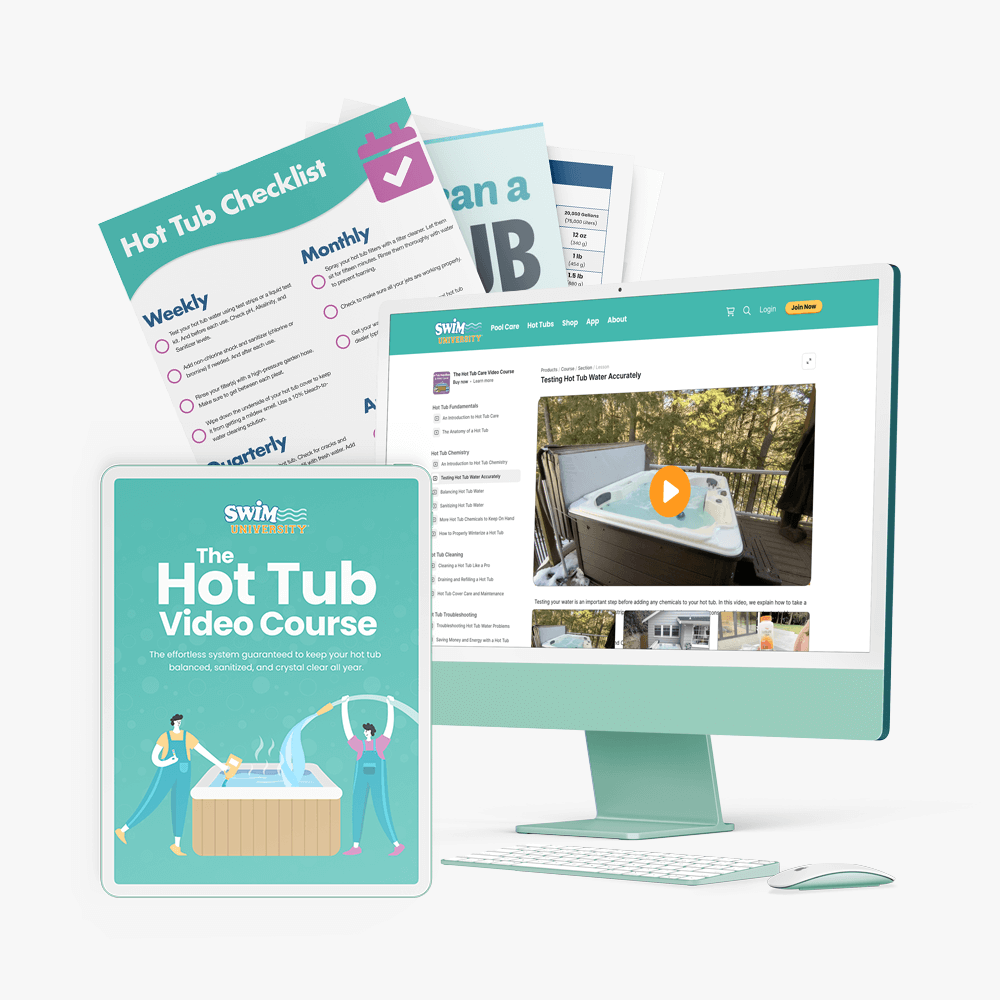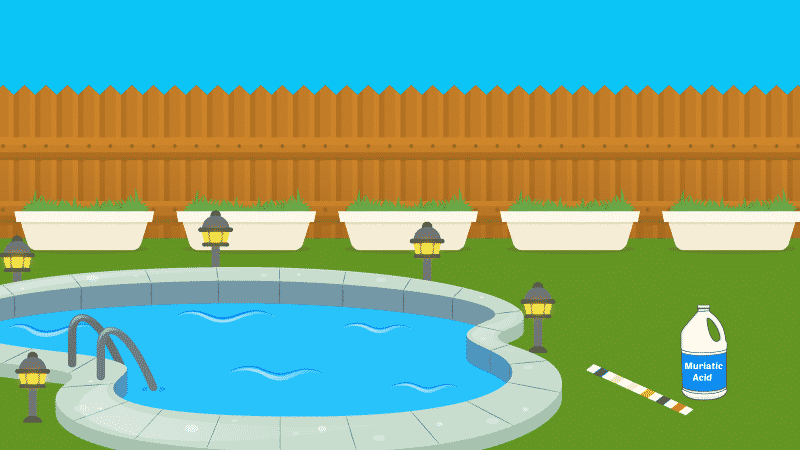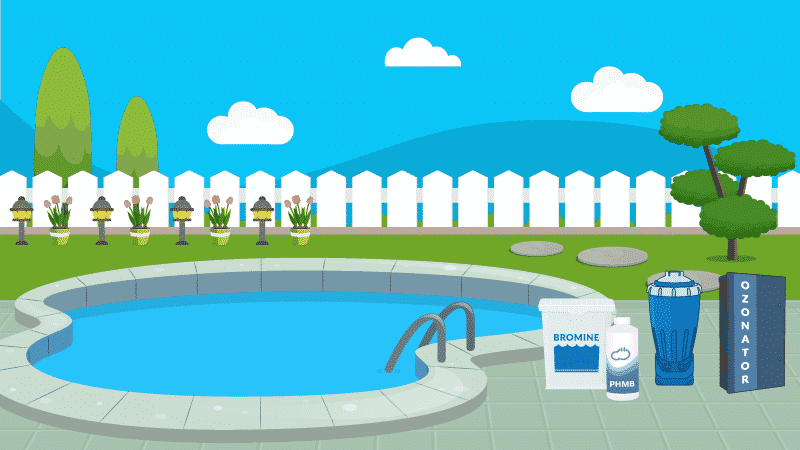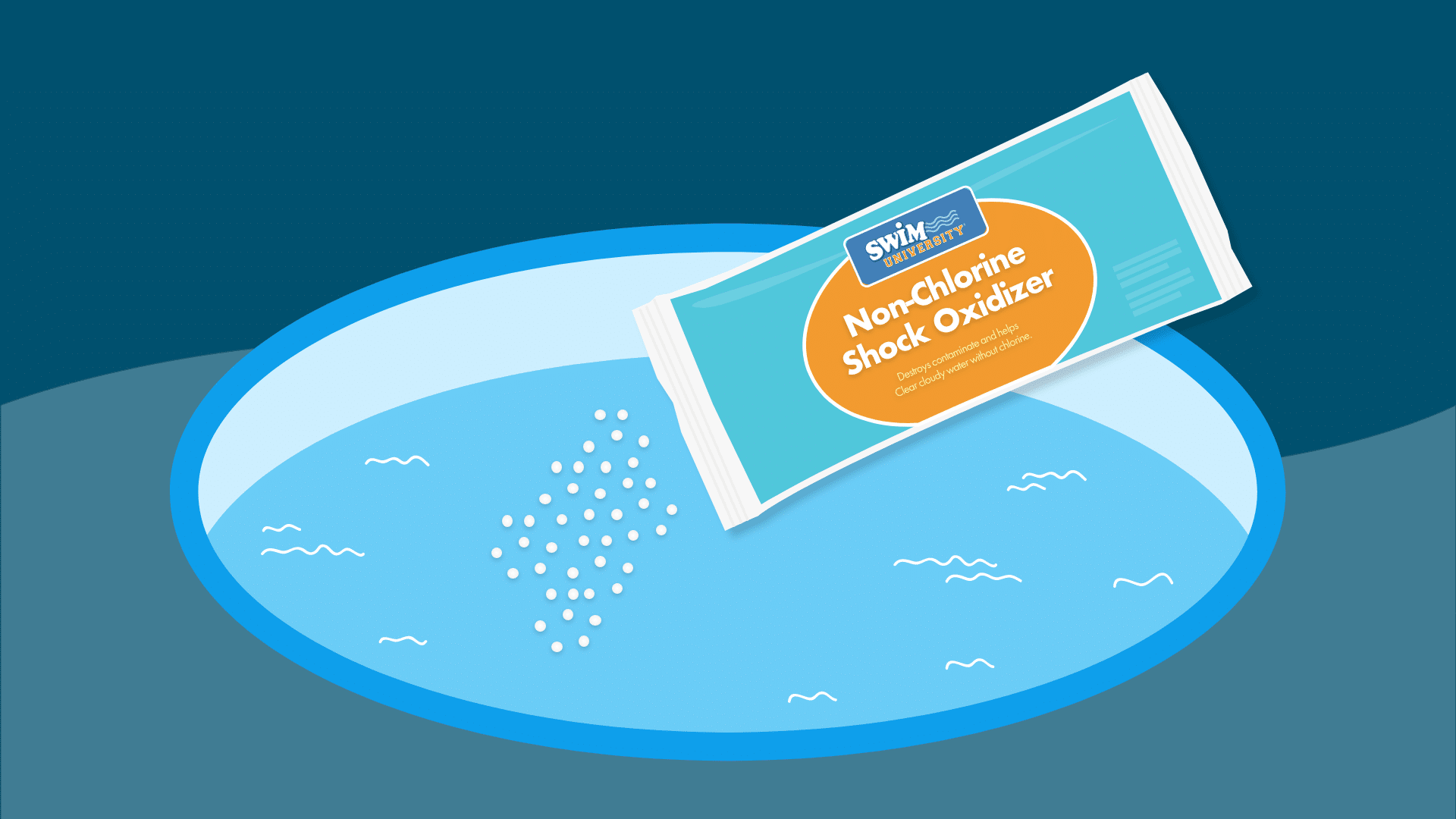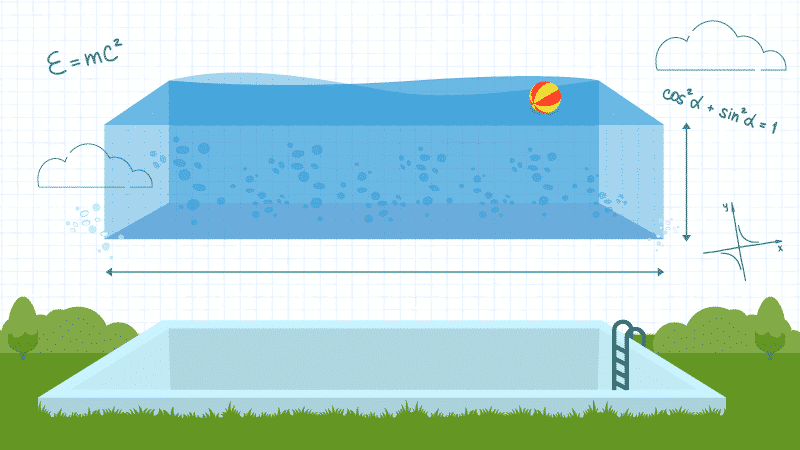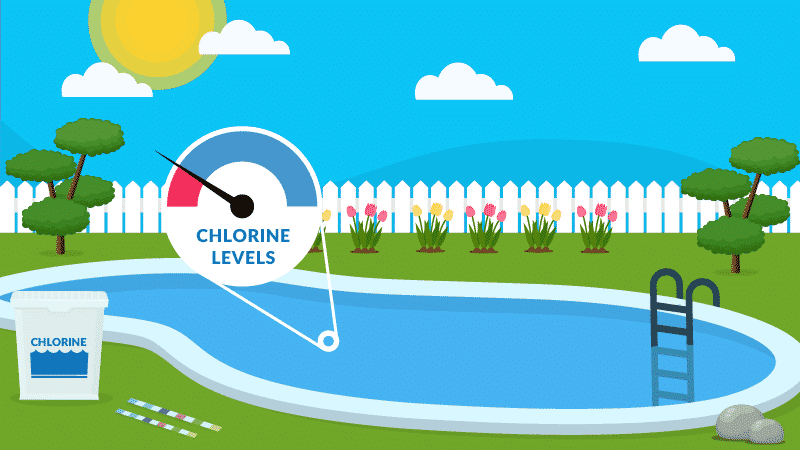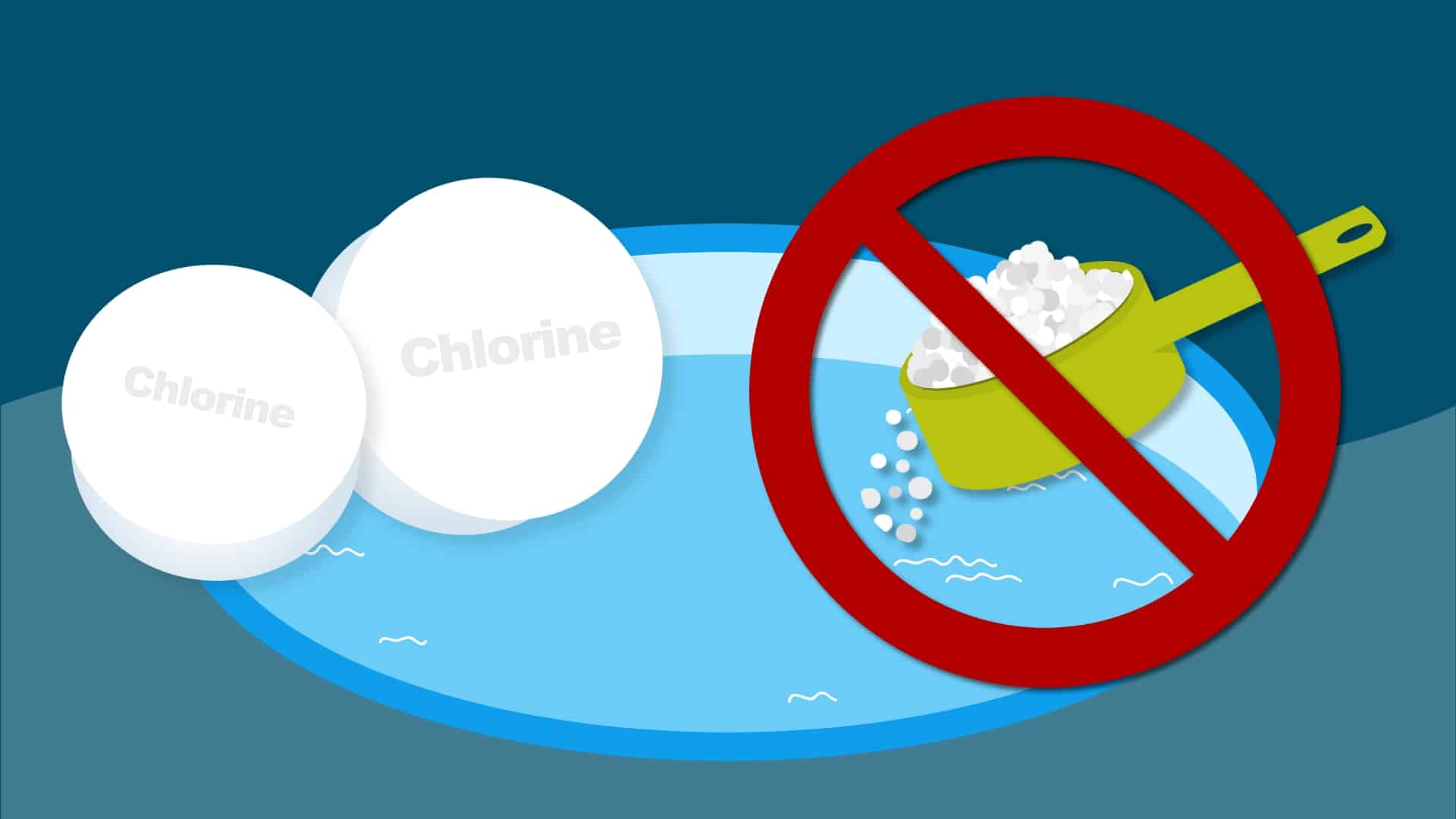The Difference Between Total and Free Chlorine
Chlorine is chlorine is chlorine, right? You add it to your pool, your pool is clean, and that’s that. It’s not a difficult concept to understand. Well, except for the fact that there’s more than one type of chlorine in your pool water, and if you’re not keeping track of how much of each type is in the water, your pool may not be as clean as you think it is.
The key to keeping your pool sanitized—and keeping swimmers safe and healthy—is understanding the difference between total and free chlorine.
What Are Combined, Total, and Free Chlorine?
Wait, where did that third option come from?! Combined chlorine? Isn’t that the same as total chlorine?
The short answer is no, but it is easy to confuse them. That is, until you understand what each term means, and how each type of chlorine is created.
Free Chlorine
When you add chlorine to your pool, it dissolves and forms hypochlorous acid (HOCI). This weak acid then further dissociates in the water, combines with oxygen, and forms hypochlorite (CIO), an oxidizing ion, and the active ingredient in household bleach. Together, these chemicals form free chlorine.
Exactly as its name suggests, this is the chlorine that’s free or available to sanitize your pool. This is what you test for when you’re balancing your pool water chemistry. When you add chlorine, you’re increasing the amount of free chlorine in the water, and aiming for between 1 and 3 parts per million (ppm), the ideal level being 3 ppm.
Once the free chlorine begins to react with contaminants in the water, it becomes combined chlorine.
Stock up and save money on chlorine tablets for the season by getting the standard 3-inch stabilized chlorine pucks.
Combined Chlorine
In order to sanitize your pool water, free chlorine oxidizes contaminants such as nitrogen and ammonia. In the process, the available chlorine is used up, combines with the contaminants it’s working against, and becomes combined chlorine. This is also how chloramines are formed.
Some chlorine does remain in the water, but its ability to sanitize is reduced compared to free chlorine.
Total Chlorine
Simply put, this is the sum of the combined and free chlorine in your pool water.
FC + CC = TC
Put It All Together
If total and free chlorine levels are the same, there’s no combined chlorine in your water, meaning none of it has been used up yet.
If the total chlorine level is higher than the free chlorine level, the difference of the two is the combined chlorine level.
In order for your pool to be properly sanitized, the free chlorine level must remain higher than the combined chlorine level. This is why it’s so important to test your pool water regularly. This is easy to do with test strips or a liquid test kit.
This complete water testing kit helps keep your pool or hot tub clean and safe to swim in, with easy-to-follow color instructions and all the supplies you need in one box.
Free Chlorine Means Free Swim!
Not so confusing anymore, right? It’s really pretty simple once you understand just a teesny bit of chemistry and math. Then all you need to do is make sure you keep the right amount of free chlorine in your pool to keep it clean and sanitized.
An unsanitized pool is an unsafe pool. Keep a close eye on those chlorine levels, and you and your family can enjoy your pool without worry.
Happy Swimming!
3 Ways We Can Help With Your Pool
- The Pool Care Handbook: An illustrated guide to DIY pool care, including water chemistry, maintenance, troubleshooting, and more.
- The Pool Care Video Course: You’ll get 30+ step-by-step videos and a downloadable guide with everything you need to know about pool maintenance.
- The Pool Care App: Enter your water test results. Get a custom treatment plan. Know exactly what chemicals to add to keep your pool clear.
